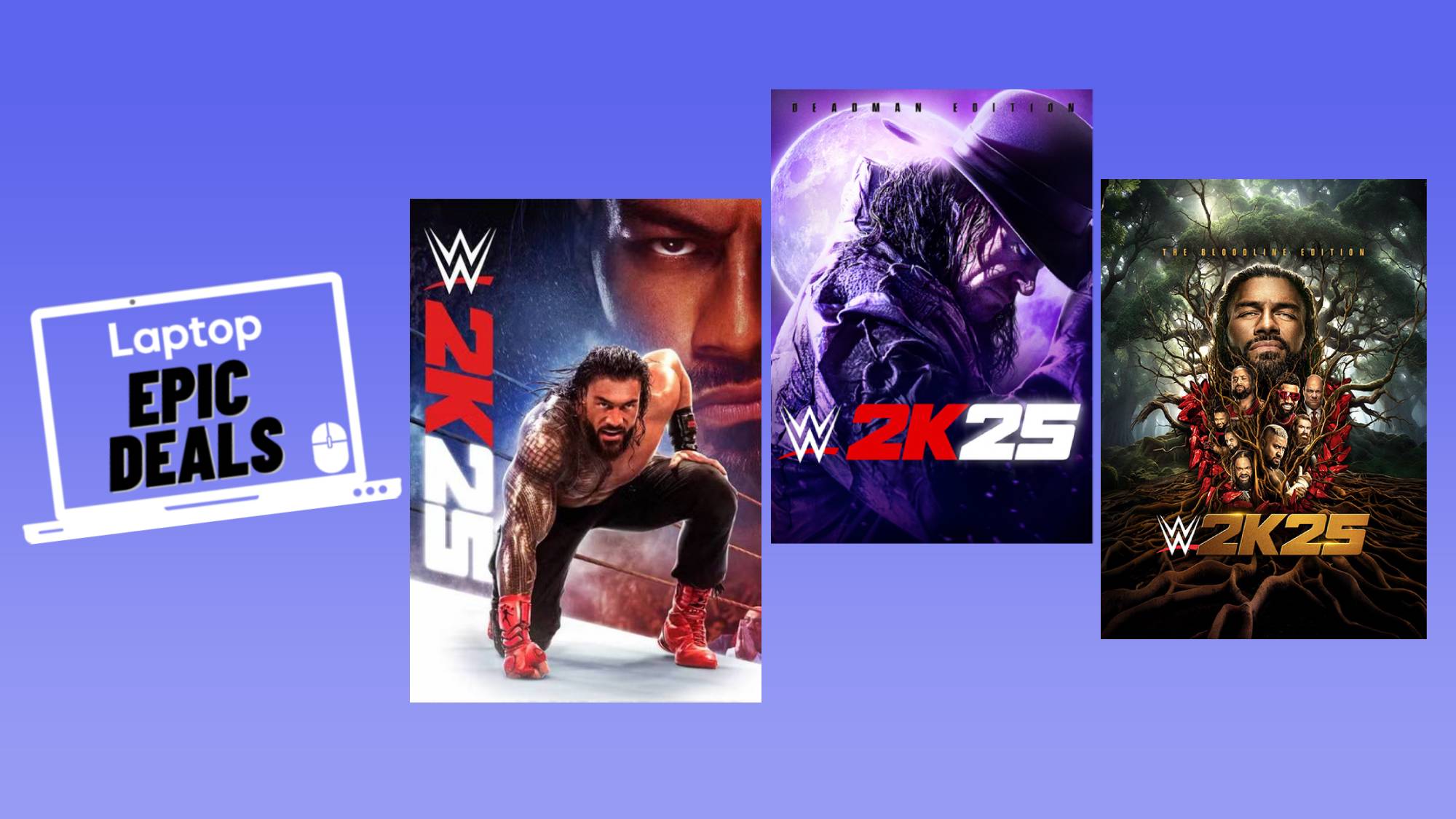Google reveals plan to transform the Play store from an open-air bazaar to a premium shopping mall
Google is renovating the sometimes chaotic shopping experience into something more welcoming and organized—a place where the tech giant hopes you will spend much more time.
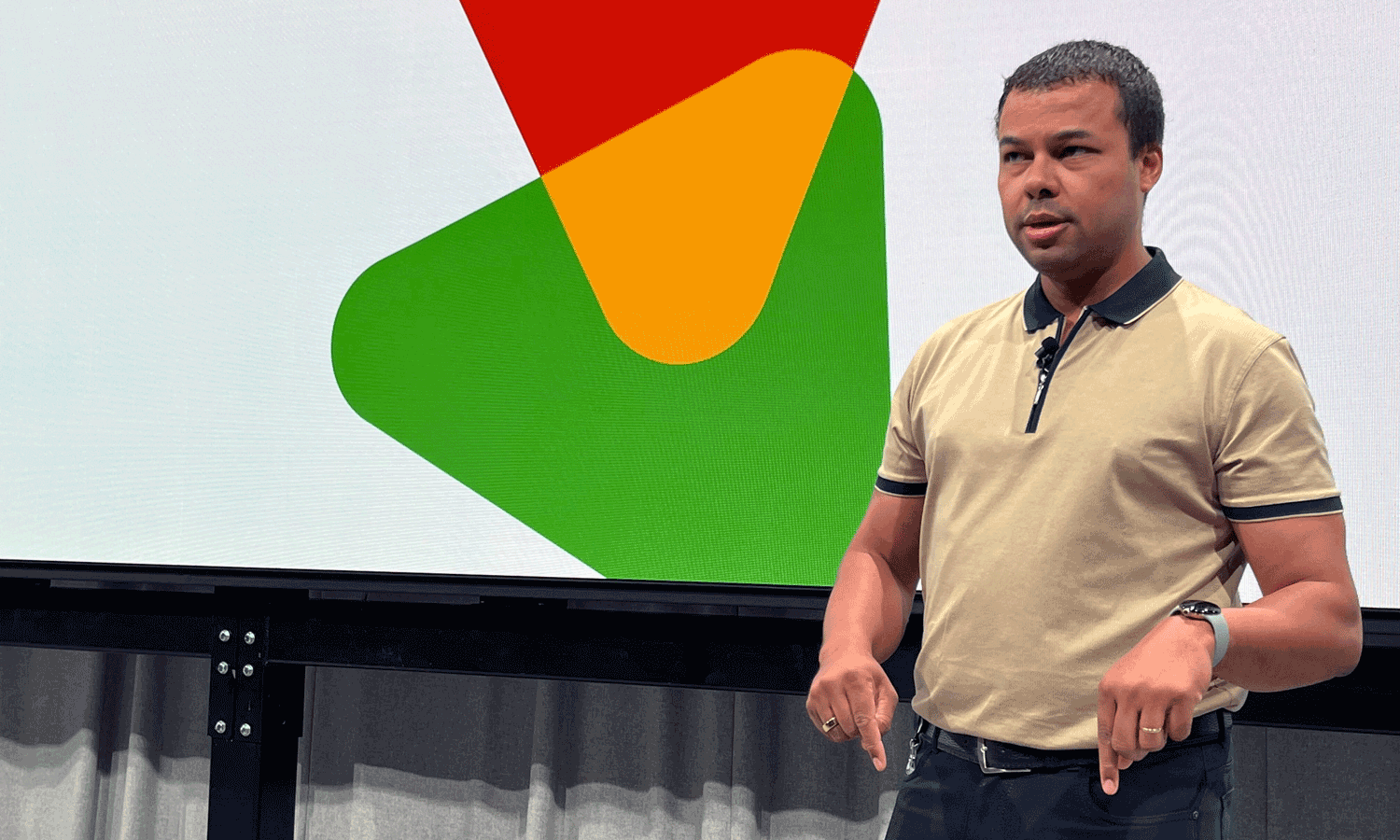
To think about it in physical terms, the Google Play store is like a massive, underregulated open-air bazaar. It has countless games, apps, movies, TV shows, books, and more. There are amazing deals if you look hard enough. Meanwhile, other apps are decidedly more buyer-beware — threatening to “steal sensitive information and login credentials from unsuspecting Android owners,” as Laptop Mag reported in May.
Google is renovating the sometimes chaotic shopping experience into something more welcoming and organized—a place where the tech giant hopes you will spend much more time.
It seems the Play store will dramatically change in 2024 and 2025; the updates began in earnest this month when the company announced that scores of sketchy or low-quality apps would be removed from the store on August 31. Google wants to “ensure apps meet uplifted standards for the Play catalog,” the company has announced.
App removal is the first part of the renovation job. The second part was revealed on Tuesday to reporters inside Google's warehouse-styled New York offices on the west side of Manhattan. Google product managers and one marathon-wary executive showed off the new features coming to the Play Store this week and later this month.
Sam Bright, Google Play's Vice President and General Manager, introduced how Google Play would expand "beyond the store" to include new features.
"We know that developers have come up with an app for just about every problem, situation, or interest out there," Bright said. "This is an incredible benefit for users, but many users, including myself, have great apps on their phones that sometimes go unused."
Bright said that Android app users are happy to have a wealth of apps from which to choose but conceded they need help finding them. Moreover, they don’t spend time in the app store. There hasn’t been a good enough reason to.
Stay in the know with Laptop Mag
Get our in-depth reviews, helpful tips, great deals, and the biggest news stories delivered to your inbox.
“App stores today have become a place where people download an app. And in some cases, they don’t visit again until it’s time for them to download the next one. We want to change that here in Play,” Bright said.
“With experiences in Play on your home screen and across apps, we’re taking Play from a destination people visit for apps to an end-to-end experience that’s more than a store.”
Below is how the company hopes users will see Play as more than just a store in the months ahead. Like most things with Google, these new features create more opportunities for the company to learn about its users — their interests, behaviors, shopping habits, and more — to gain insights to help it strike deals with retailers and app developers.
Google Collections debuts
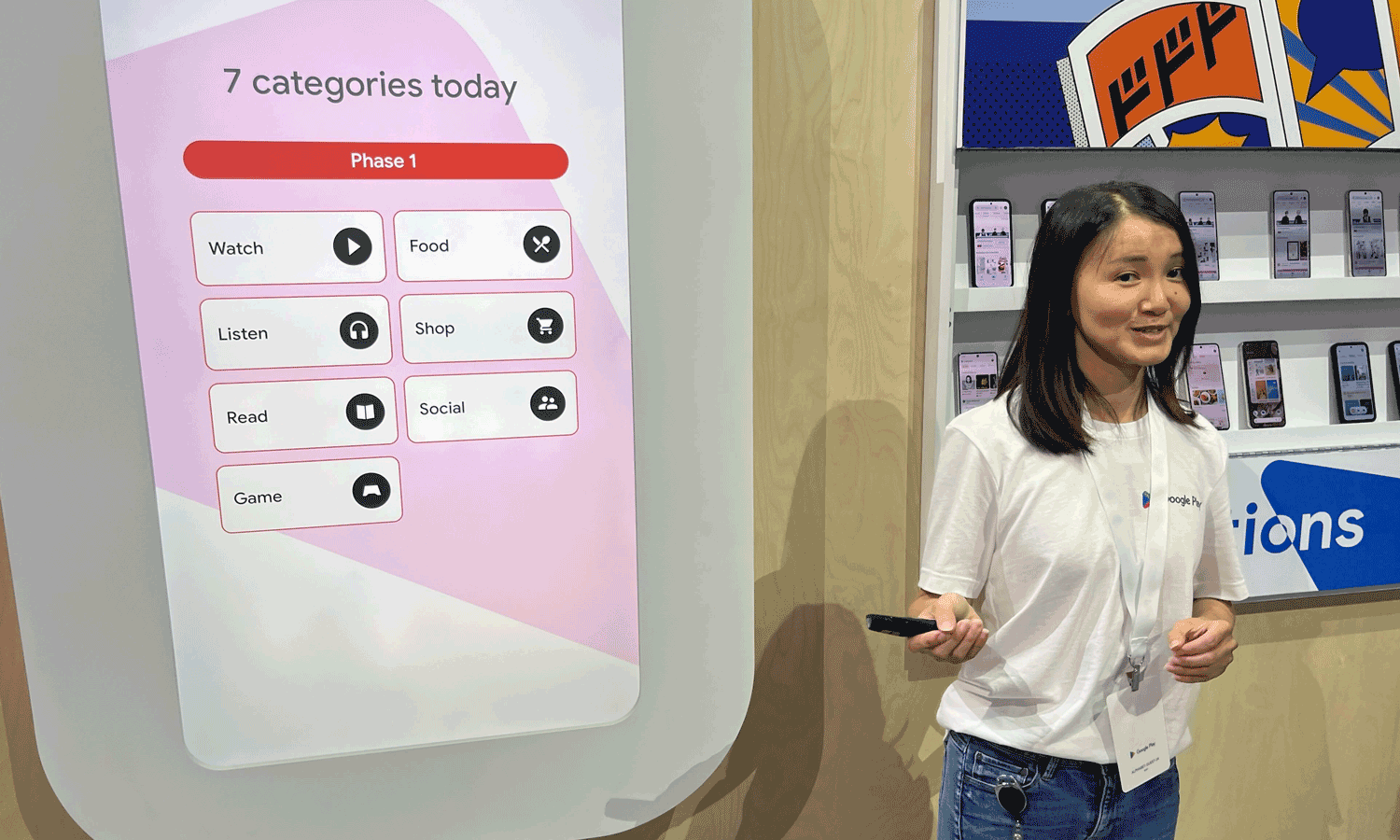
Among the new features is one called Collections, which launched on Wednesday. Essentially, it groups updates from related apps and presents them in feeds. For example, Bright explained that if you’re running a marathon, Collections will group updates from the running app Strava, the fundraising app GoFundMe, and the fitness app MyFitnessTracker into a single feed. If you’re a shopper, it will collect updates from your browsing history on apps like Walmart, Adidas, and Best Buy.
To start, Google is only sorting apps into seven categories for its Collections feature (“watch,” “listen,” “read,” “game,” “food,” “shop,” and “social”), but there are plans for more (“health & fitness,” “travel & events,” “sports,” and “dating”) soon. Users will be able to make their own custom categories in the future—just not quite yet.
If you enjoy being reminded of what's going on in your apps — because, maybe, like me, you forget you have some apps — Collections will be a welcome addition to Play. If you're constantly pulling up individual apps all the time, this may not be that much of a game-changer. But Google rarely rolls out initiatives like this without terabytes of data to support it, and the longevity of recommendation-focused features like Google Discover indicates that Collections may be sticky among users.
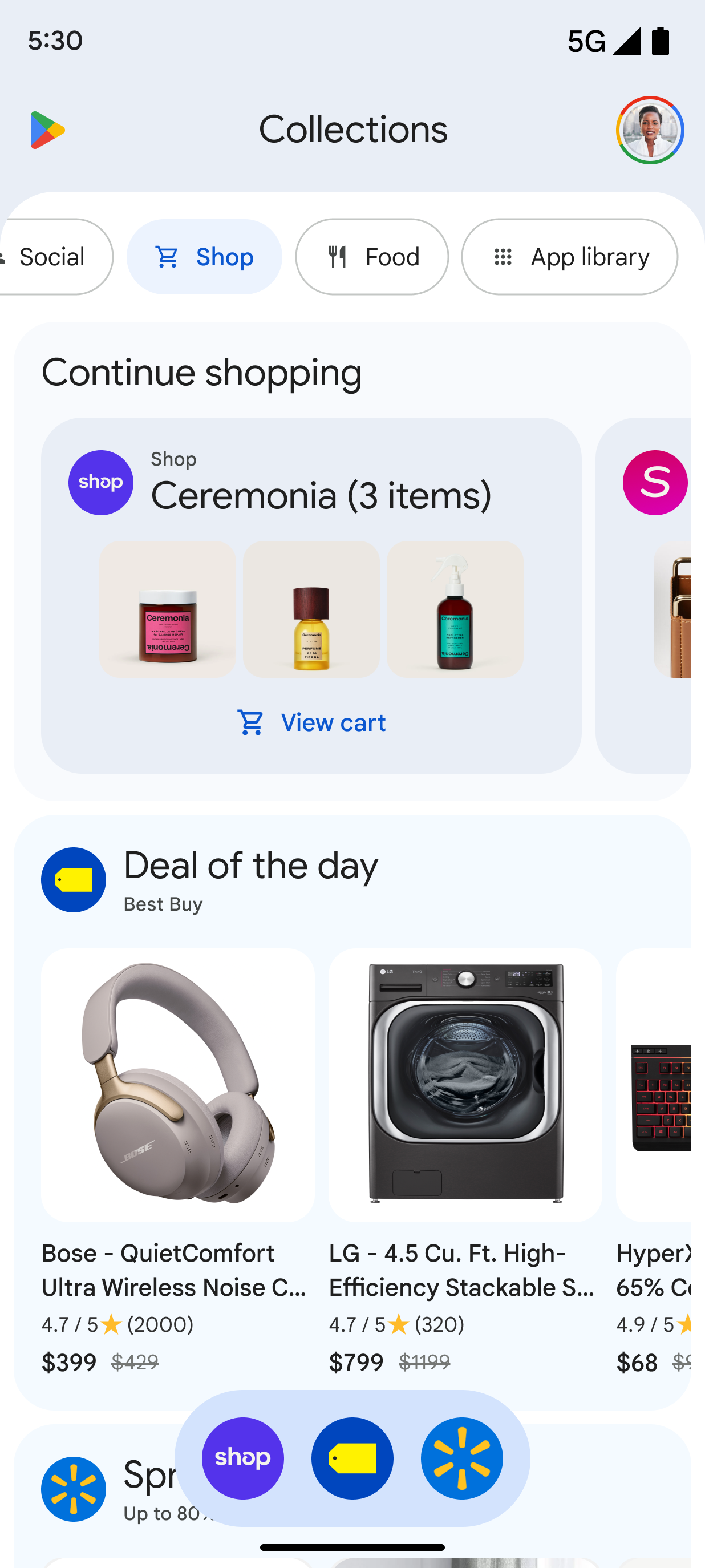
A preview of the Google Play Collections feature that launched on Wednesday.
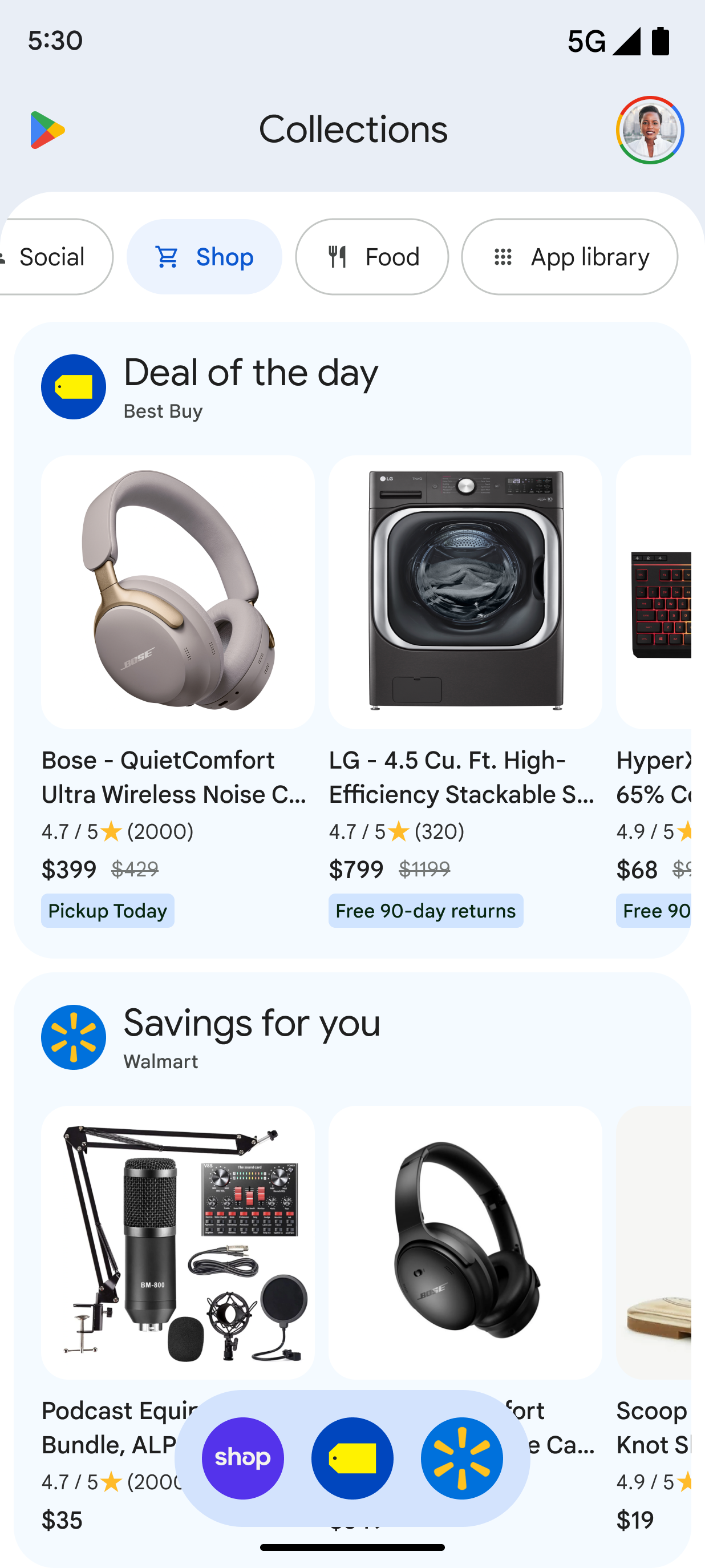
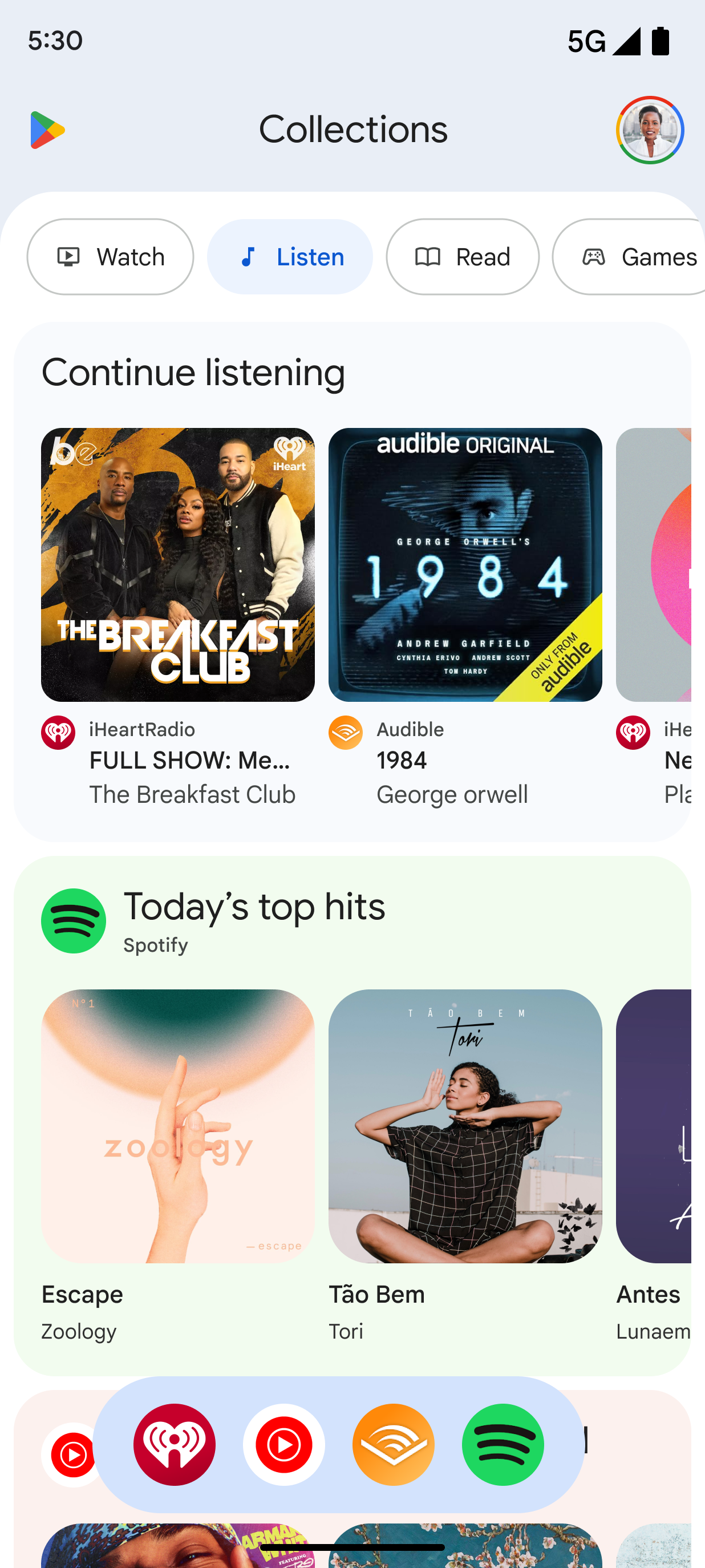
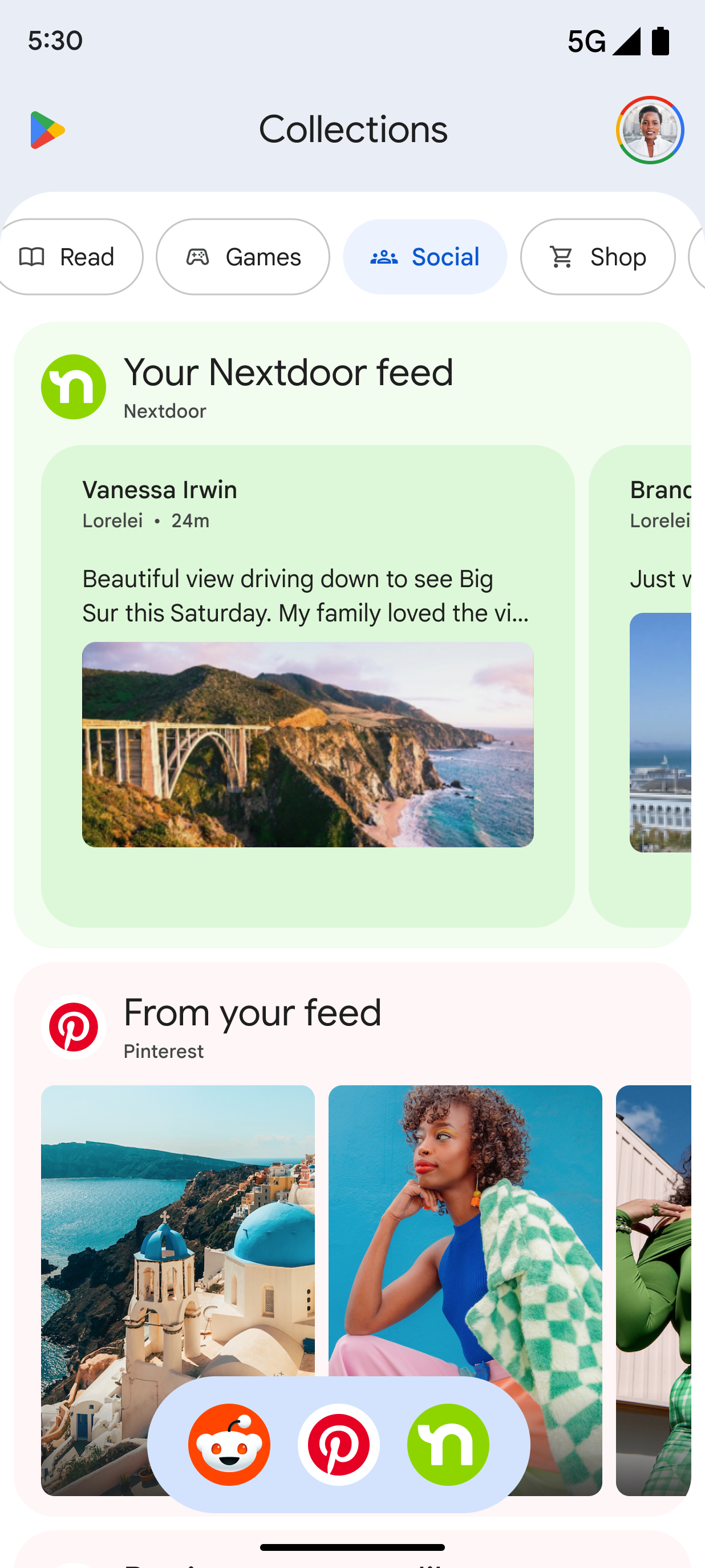
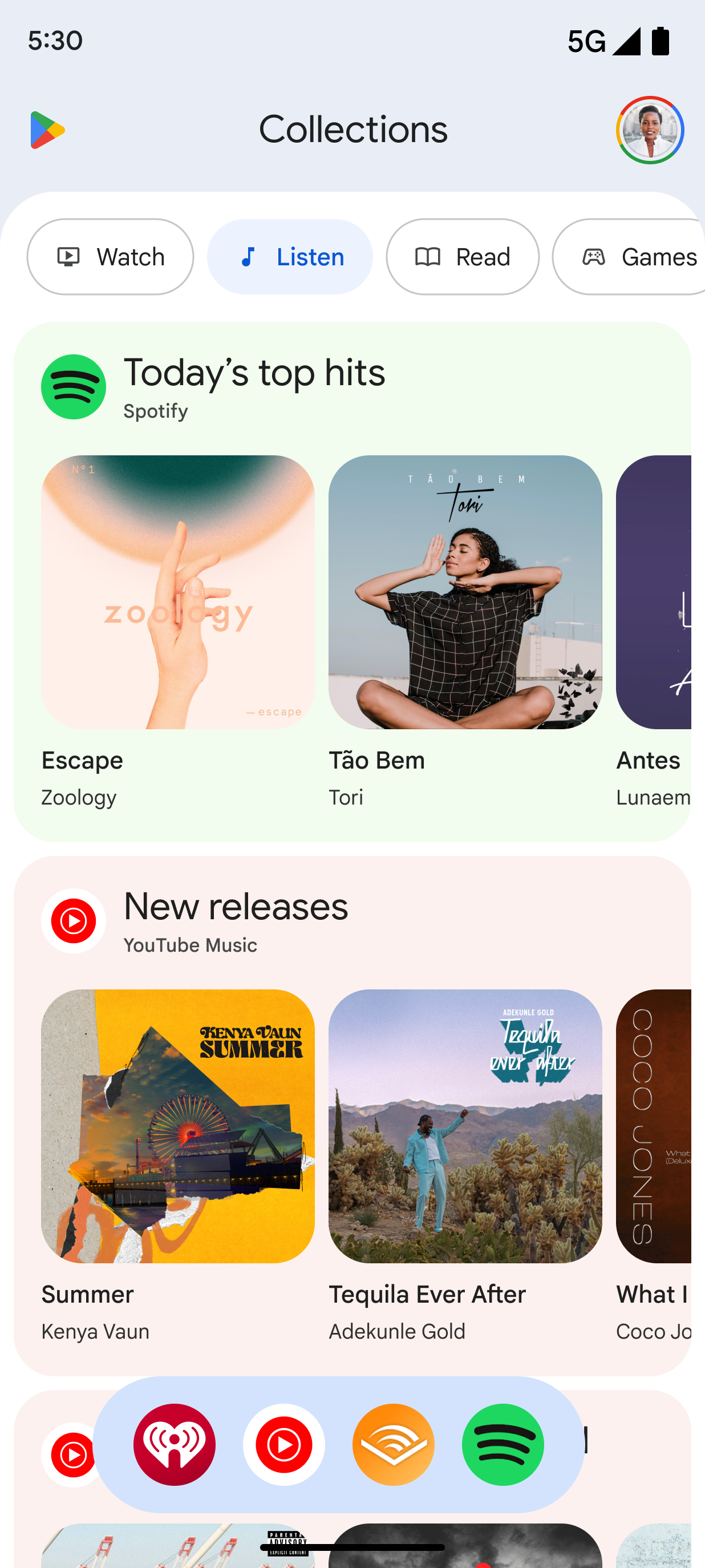
Ting Mui Li, a Google product manager, tells Laptop Mag that eventually, Google Discover content—aka web pages—will be recommended in collections if it aligns with the theme of those apps.
“Web will come later, and we could totally see being able to give more content suggestions and recommendations for different collections,” Li said on Tuesday.
For example, if you have the NBA app and the Brooklyn Nets App in your “sports” collection, Google may recommend an article from The Athletic about the Nets in the collection.
Google Comics is coming to Japan
Another new Play feature is Comics, which signals how Google wants Play to become more than a store through content consumption. Comics is a curated manga and webtoons shop and reader that will first be launched in Japan.
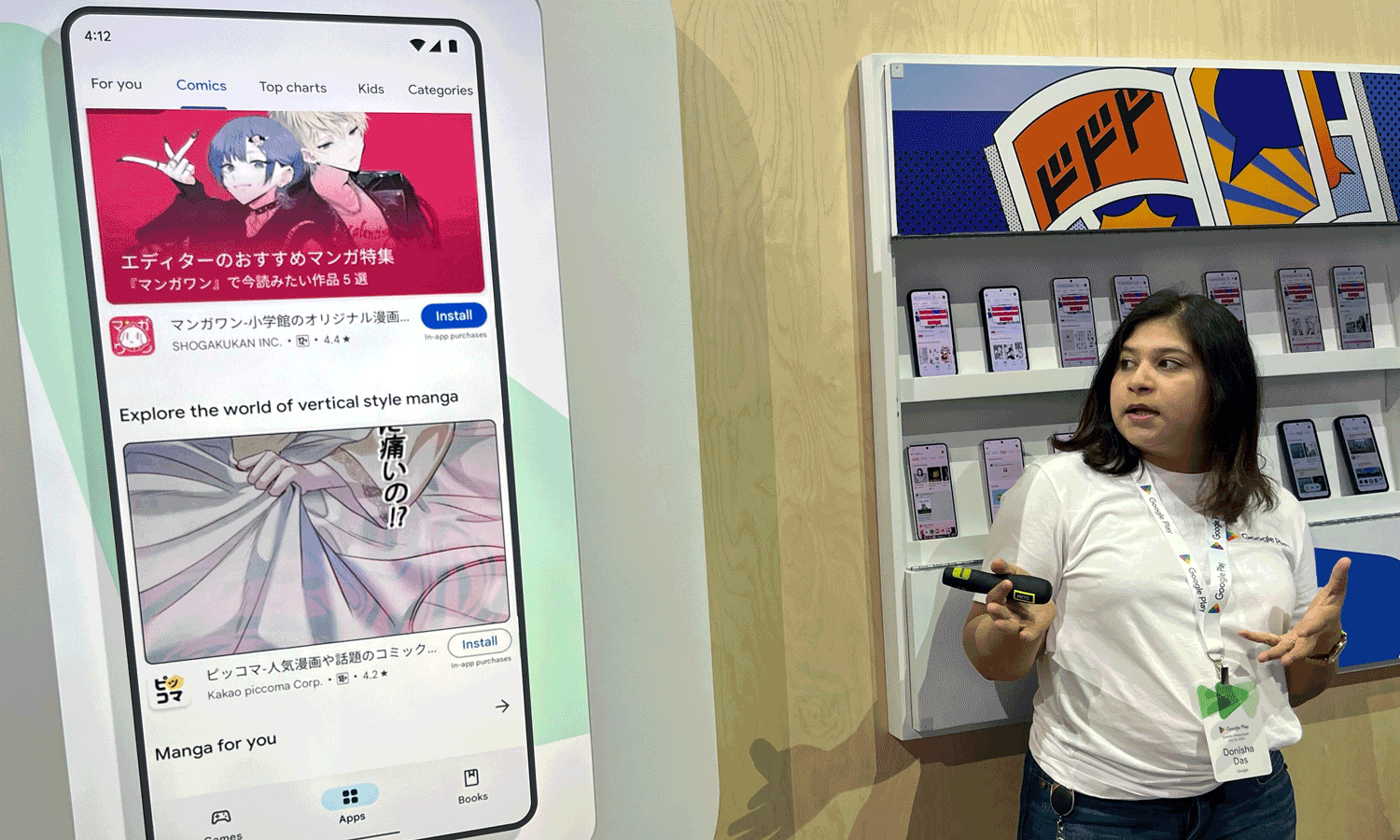
Donisha Das, a Google product manager, said users will get personalized recommendations for comics and related content.
Das tells Laptop Mag that entertainment could come next, after Comics. As for when this new feature would move beyond comics, Das says Google wants to move “pretty fast” onto new iterations.
Google Gemini, the generative AI tool that underpinned just about every update the company announced at its annual I/O event a little more than two months ago, is, of course, at the heart of every recommendation that the new Google Play features make (unless you turn it off; more on that below).
Google Play Personalization arrives
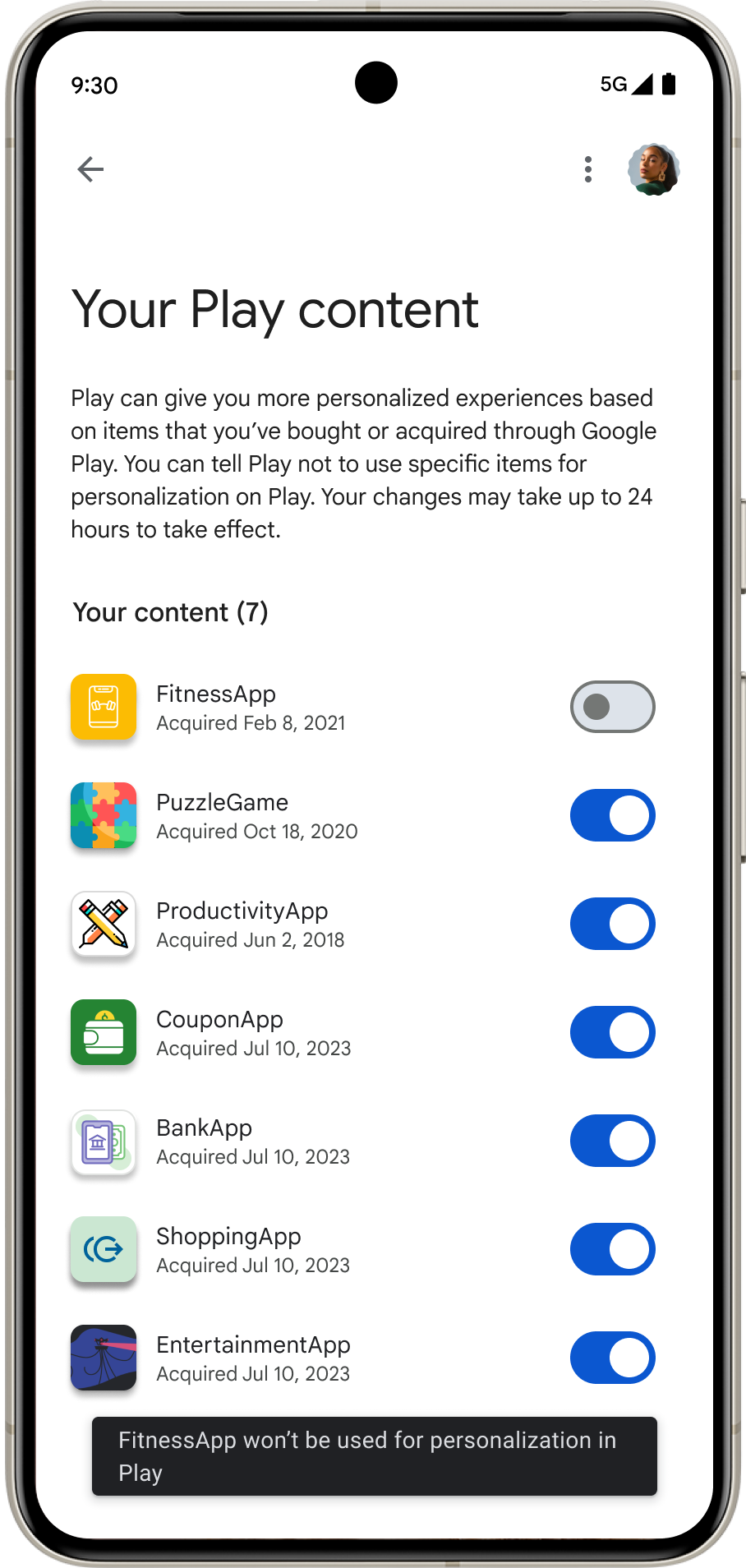
A throttle against all these personalized recommendations in the new Play (Google reps rarely — never? — called it the “Play Store” during various demos) is a personalization feature that helpfully allows you to turn off app personalization suggestions. If you don't want to get suggestions or updates from an app (for example: The toilet paper you were eyeballing in the Walmart app has just been put on sale, and you receive a notification about it), you can turn it off.
A Google product manager confirmed that if you don’t want to receive recommendations, Google won’t show them. However, it will still collect your data about your toilet paper interest.
Google Play Games and Google Play Points
Gaming is also getting several cool upgrades. Google Play Games will enable users to switch seamlessly from their Android device to their computer via the Android app Google Play Games on PC. “You can start a mobile game on your commute and then secure the win at home on your tablet or PC,” writes Bright in a post on Google’s Keyword Blog published Wednesday.
“With our new multi-game capabilities rolling out over the next few weeks, PC gamers can play multiple titles at the same time — actively competing in one while keeping an eye on resources in another.” So, how many games could you play at once? Well, that’s likely limited to your computing power, said Google product manager Artem Yudin during a product demo on Tuesday.
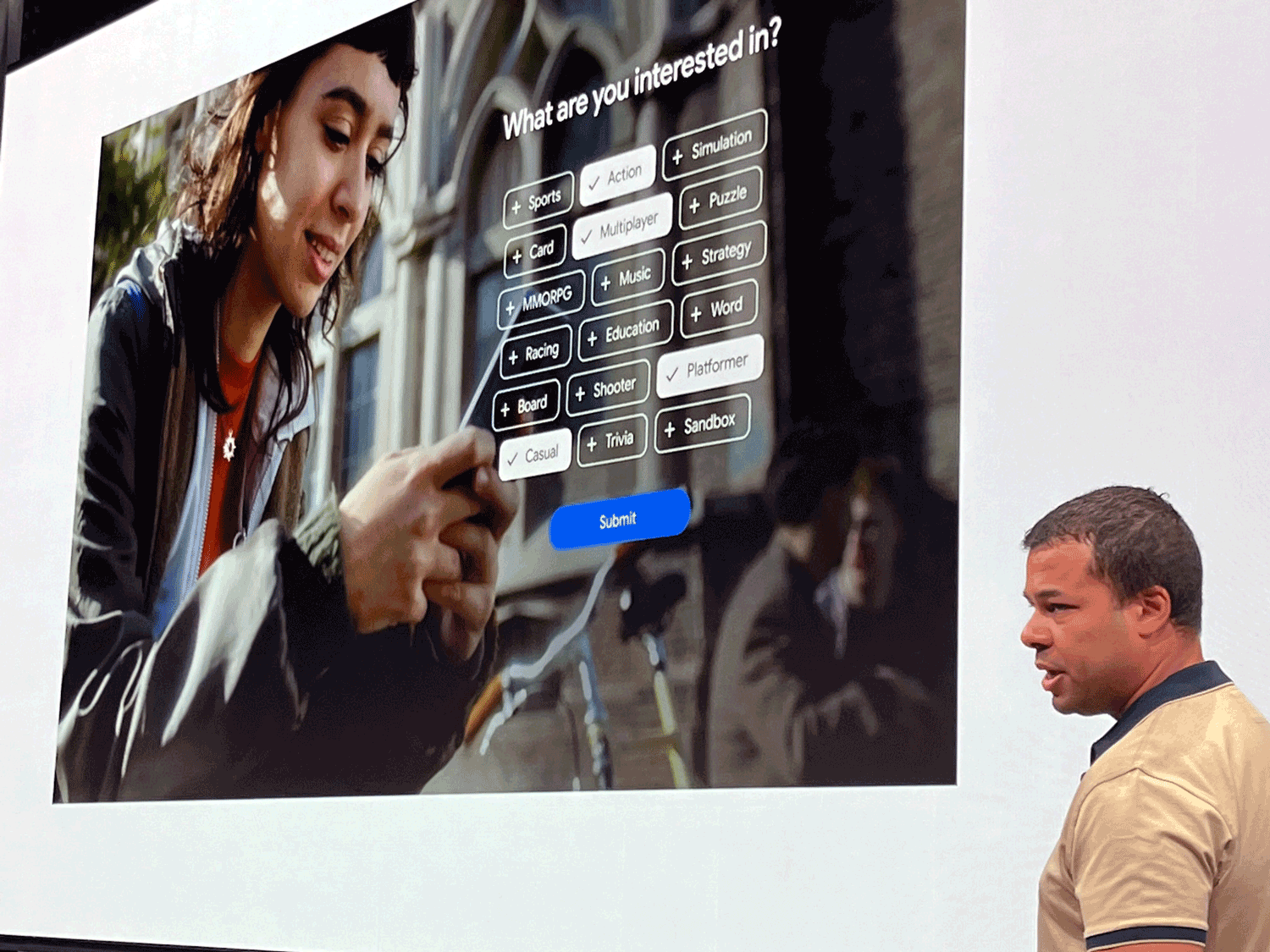
Related to gaming is the Google Play Points scheme, which is also getting an upgrade. Interestingly, Google is also letting users redeem those points for physical products. Announced in 2019, the points system gets a little more real as users can cash in their points (earned via purchases in the Play store) for physical Google products like a Pixel Watch or Pixel phone.
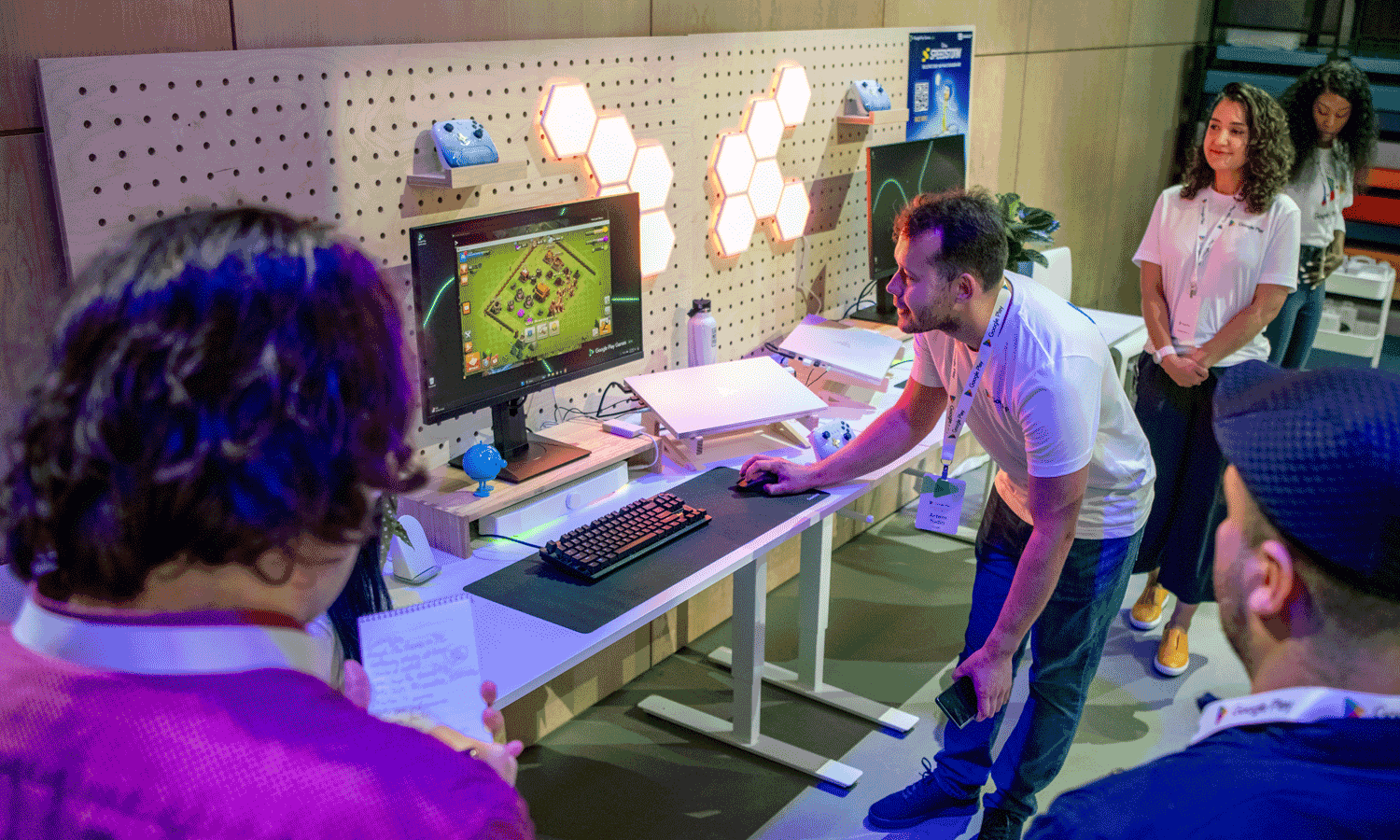
How Google will monetize these new features
It’s easy to imagine how Google, which also released its quarterly earnings on Tuesday, intends to monetize these new features through direct deals or data capture. Li and Das offered the same response to Laptop Mag about the new features: Google wants to launch, see what organically sticks and what users like, and then expand.
With the “uplifted” standard Google is implementing and removing violating apps later this summer, plus the rollout of new features to make Google Play a more significant part of your phone, the image of Google Play as an open-air bazaar may soon be replaced by something like a walled garden—something where an Apple might grow.

EIC for Laptop Mag. Admirer of a good adjective. Killer of passive voice. Mechanical keyboard casual.
